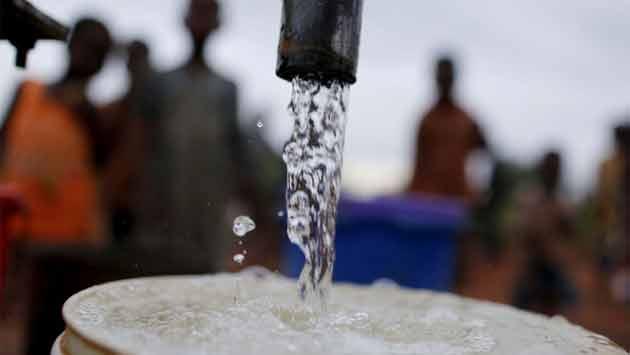15 Nov 2024 - {{hitsCtrl.values.hits}}
 A majority of Pakistan's population faces severe health problems due to contaminated drinking water, which has become a primary source of fatal diseases. Every year, at least 2.5 million Pakistanis die from diarrhoea alone. Disturbingly, the Ministry of Water Resources has acknowledged that 61% of drinking water in 29 cities across Pakistan is contaminated. In some areas, 100% of the water is deemed unsafe for consumption.
A majority of Pakistan's population faces severe health problems due to contaminated drinking water, which has become a primary source of fatal diseases. Every year, at least 2.5 million Pakistanis die from diarrhoea alone. Disturbingly, the Ministry of Water Resources has acknowledged that 61% of drinking water in 29 cities across Pakistan is contaminated. In some areas, 100% of the water is deemed unsafe for consumption.
Despite the growing crisis, Islamabad has failed to take concrete action to improve water sanitation, and the situation has worsened, particularly after the devastating floods of 2022. People continue to suffer from the after-effects of the disaster. Fatima Bibi from Sujwal tragically lost two children to waterborne diseases, as floodwaters persist and government agencies have yet to intervene. According to UNICEF, children are especially vulnerable to malnutrition and infection due to unsafe and contaminated water.
Over 80% of Pakistan's population is affected by contaminated drinking water. Muhammad Fazal, Head of Programme Strategy and Policy at WaterAid Pakistan, highlighted the severity of the situation, stating, "Imagine living in a country where every glass of water you drink could make you sick. This is the grim reality for millions of Pakistanis who can’t drink tap water without risking their health. Yet, the Federal Government lacks a national policy framework for safe drinking water."
The issue is not limited to rural areas; even major cities, including Islamabad, suffer from unsafe water. In Islamabad, 60-70% of water sources are contaminated with heavy metals like arsenic and lead, as well as faecal coliform bacteria. Improper disposal of industrial waste, solid waste, and aging infrastructure have compounded the water sanitation problem.
A similar situation exists in Lahore and Karachi, where high levels of faecal coliform bacteria were found in 96% of water samples in Karachi and 95% in Lahore. This contamination is contributing to a high incidence of waterborne diseases such as diarrhoea, vomiting, and skin issues. Alarmingly, even branded bottled water has been found to be unsafe for consumption due to microbial contamination and chemical traces.
A research study led by Khulud Qamar of Karachi’s Dow University of Health Sciences found that waterborne diseases are rapidly increasing due to microbial infestations, toxic trace elements, and industrial pollutants in Pakistan's water bodies. "Improper disposal of industrial waste has introduced metals like copper and iron, which predispose people to cancer. Other harmful impurities include heavy metals such as zinc, manganese, and copper, as well as pesticides," the study noted.
The Red Cross has warned that waterborne diseases are spreading rapidly in flood-affected areas. "Stored water is frequently contaminated, as it is rarely chlorinated and often comes into contact with hands and contaminated cups. Wells may also become contaminated by floodwater from toilets or sewage systems, increasing the risk of disease," the organization stated.
Despite promises and policies from the Pakistani government, no significant relief has been provided. "Contaminated drinking water remains a major issue for Pakistan," said Waseem Ishaque, an assistant professor at NULM Islamabad. "The situation continues to worsen as available water becomes increasingly contaminated by various harmful substances. While the government has made strong commitments to provide clean drinking water, the implementation of these policies remains a daunting challenge."
22 Dec 2024 4 hours ago
22 Dec 2024 4 hours ago
22 Dec 2024 7 hours ago
22 Dec 2024 7 hours ago
22 Dec 2024 7 hours ago